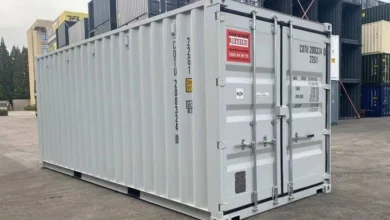
20 Tips for Successful International Freight Forwarding
Shipping goods overseas can be a complicated and costly endeavor, but with the help of a professional freight forwarder, it can be a much smoother process. It is important for you to know how you can get the most benefits out of the services. Here are twenty tips to make sure your international freight forwarding services run as smoothly as possible.
Table of Contents
The vital tips to check out:
1. Make sure you have all the necessary documentation in order – This includes things like commercial invoices, packing lists, and any required permits or licenses. Your freight forwarder can help you determine what exactly you need.
2. Choose the right shipping method – There are many different shipping methods available, each with its own advantages and disadvantages. You’ll need to take into account factors like time sensitivity, budget, and type of goods being shipped when making your decision.
3. Pack your goods properly – Improper packing can lead to damage during transit, so it’s important to do it right. Make sure you use sturdy boxes or crates, cushioning material, and proper labeling.
4. Choose a reputable freight forwarder – This is perhaps the most important tip of all. A good freight forwarder will have experience with international shipping, a network of reliable partners, and a reputation for providing excellent service.
5. Communicate your needs clearly – Be sure to let your freight forwarder know about any special requirements you may have, such as time-sensitive shipments or items that require extra care.
6. Get insurance for your shipment – This will protect your goods in case of damage or loss during transit.
7. Keep track of your shipment – Once your goods have been shipped, you’ll want to be able to track their progress. Your freight forwarder can provide you with updates along the way.
8. Be prepared for delays – Unfortunately, delays are sometimes unavoidable in international shipping. If possible, build some extra time into your schedule in case of delays.
9. Be aware of customs regulations – Every country has its own customs regulations that must be followed when shipping goods into or out of the country. Your freight forwarder can help you navigate these regulations.
10. Make sure your goods are properly labeled – All shipments must be clearly labeled with the sender’s and receiver’s information, as well as a detailed description of the contents.
11. Use the proper packaging – The type of packaging you use will depend on the goods being shipped and the shipping method you’ve chosen. Your freight forwarder can advise you on the best type of packaging for your shipment.
12. Avoid shipping prohibited items – There are certain items that cannot be shipped internationally due to customs regulations or other restrictions. Before shipping anything, check to make sure it’s not on the list of prohibited items.
13. Know your rights and responsibilities – When you ship goods internationally, you have certain rights and responsibilities under international law. Familiarize yourself with these before proceeding with your shipment.
14. Be aware of potential scams – Unfortunately, there are people who try to take advantage of the international shipping process by scamming businesses or individuals. Be on the lookout for red flags that might indicate a scam, and never ship anything until you’re sure everything is legitimate.
15. Understand incoterms – Incoterms are terms used to describe the responsibilities of the buyer and seller in an international shipping transaction. There are 11 different incoterms, so it’s important to choose the right one for your shipment.
16. Get quotes from multiple freight forwarders – Once you’ve decided to ship goods internationally, get quotes from multiple freight forwarders before choosing one. This will help you ensure you’re getting the best possible price.
17. Compare shipping rates – When comparing quotes from different freight forwarders, be sure to compare the shipping rates they’re offering. This will help you get an idea of the total cost of your shipment.
18. Consider other factors – In addition to price, there are other important factors to consider when choosing a freight forwarder, such as experience, reputation, and customer service.
19. Ask for references – A good freight forwarder should be able to provide you with references from past clients. This will give you an idea of what it’s like to work with them.
20. Get everything in writing – Once you’ve chosen a freight forwarder, be sure to get all the details of your agreement in writing. This will protect you in case of any problems later on.
The importance of having realistic expectations from international shipping services: Reasons explained!
When it comes to international shipping, there are a lot of things that can go wrong. Whether it’s delays at the port, damaged goods, or customs issues, there are plenty of potential problems that can arise. That’s why it’s important to have realistic expectations when you ship goods internationally.
- One of the most important things to remember is that delays are common in international shipping. Even if everything goes smoothly on your end, there’s always the possibility of delays at the port or with customs.
- Another thing to keep in mind is that damage sometimes occurs during transit. This is usually out of your control, so it’s important to have insurance in place in case something happens to your shipment.
- Finally, be aware that there are always risks associated with international shipping. There’s always the possibility of lost shipments, customs issues, or other problems. If you’re not prepared for these eventualities, they can cause a lot of stress and frustration.
By keeping these things in mind, you can set realistic expectations for your international shipment. This will help you avoid surprises and disappointments down the road. Also, if you do run into problems, you’ll be better prepared to deal with them. So, don’t hesitate to set realistic expectations for your international shipment – it’s the best way to avoid problems later on.
Conclusion:
When it comes to international shipping, there are a lot of potential pitfalls. That’s why it’s important to have realistic expectations and be prepared for anything that might happen. By following these tips, you can set yourself up for success. So, now it is time to get started with the international shipping process. Good luck!








